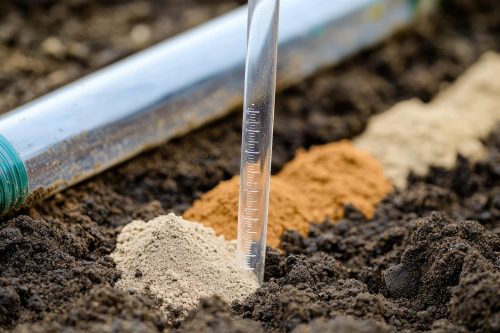How to test and improve your soil’s pH level
There are several reasons to test the pH of soil, primarily to ensure that your plants receive the correct nutrients to help them to flourish
There are several reasons to test the pH of soil, primarily to ensure that your plants receive the correct nutrients to help them to flourish.
Want a fabulous display of rhododendrons? If your soil is too alkaline, they will not grow without help.
Love lilacs and lavender? Then you must ensure your soil does not have too much acidity.
The correct pH in soil test will ensure that your plants will suffer no nutrient deficiencies, be more resilient, and that beneficial organisms will make their home in the prefect habitat.
What is soil pH ?
Soil pH is a way of telling you how acid or alkaline the soil is.
You need this knowledge before you plan your garden, as different plants thrive in different soils. This is why it is essential to test pH soil.
The pH is a way of assessing just how acid or alkaline your soil is. It’s rated as a number between 0 and 14.
Soil with a pH of 7 is neutral, and therefore considered the optimum type of soil for a variety of plants. More acidic soil has a lower value, and an alkaline soil has a higher one.
Most plants grow best in soil that’s within a specific pH range, which is why it’s useful to know your soil’s pH.
The best time to measure pH is before designing or planting a new garden, or maybe making vegetable plots and/or planting fruit.
If you don’t, you’ll soon see the effects in the shape of a disappointing yield or a yellowing of foliage.
Once you test for soil pH, you’ll be able to understand where to go from there.
If your soil is on the acidic side, you can add lime to increase soil pH – that is, make it more alkaline while acidifying materials are added to decrease soil pH.
Testing can be done at any time, but if you carry it out within three months of adding lime, fertiliser, or organic matter, do be aware that the test may give misleading results.
How to test soil pH
One of the easiest ways of testing pH soil is by using a soil pH tester kit, but you can also have your soil professionally tested.
Worried about soil pH how to test? Don’t be.
Testing kits are pretty cheap, as well as easy to use, but it’s recommended that after you’ve tested the soil you send a sample to a laboratory for detailed analysis.
One thing you need to be aware of is that some DIY kits may not be sophisticated enough to pick up on free calcium carbonate (chalk or limestone).
However, you can do a quick test to check for free calcium carbonate by introducing vinegar to a soil sample.
If you see it ‘fizzing’, your soil has free calcium carbonate.
It’s beneficial to test soil pH whenever you plant a new garden bed, move to a new home, or grow a new variety of plant with specific pH needs.
You should also test the soil every few years, as its composition may change if you have added certain nutrients, and you may need to amend it.
These additive elements break down over time and might need reapplying to keep the pH level optimal.
A natural and fun way to carry out soil testing for pH is to observe the different kinds of weeds that sprouted up on the land throughout the summer.
They’re a brilliant way to reveal your soil pH. For example, if your garden is filled with dandelions and wild strawberries the chances are that you have acidic soil, while chickweed, Queen Anne's lace, and chicory all thrive in an alkaline soil.
Finally, should you test your soil and find it’s unsuitable for a specific project, then you can easily rectify the lack of the right nutrients with an application of topsoil.
This is a natural soil, but one that’s been manufactured from different locations, then processed to offer nutrients that may not be present in garden soil.
If you want to create the perfect environment to enable you to grow healthy plants, take a look at the section on soils on our website.










The information below is required for social login
Login
Register
Fill in the form below to create your new account